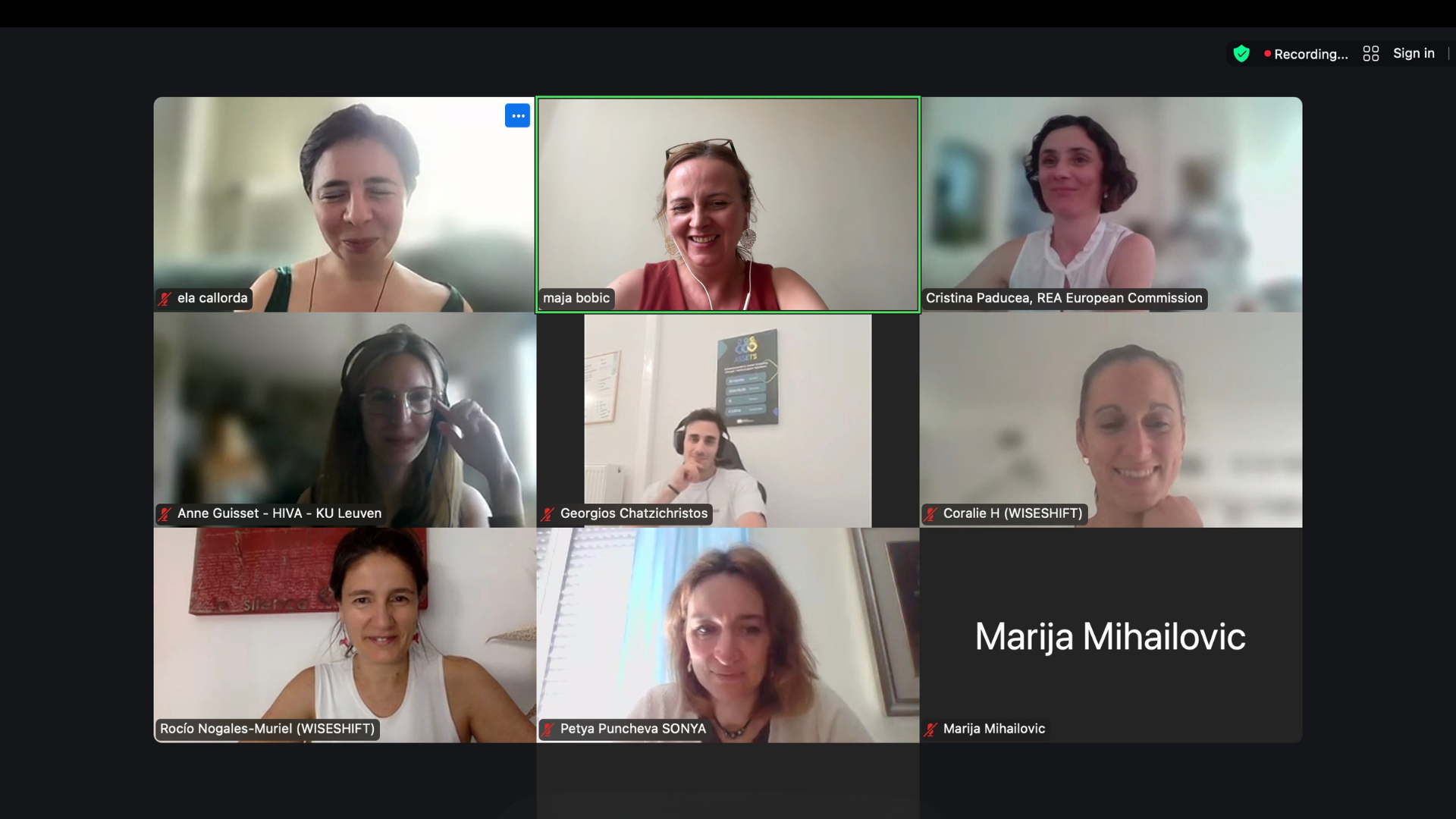
Paving the Way for Fairer Work: Collaborative Workshop on Digital Tools for the Social Economy
On 19 June, representatives from several EU-funded sister projects came together for a joint workshop aimed at advancing digital solutions to improve working conditions in Europe’s social economy. The session brought together researchers, coordinators, and practitioners working across diverse fields, from care to the circular economy, to exchange insights, identify synergies, and reinforce a shared commitment to inclusive, sustainable innovation. Despite some scheduling overlaps, the energy remained focused on co-creation and collaboration, with a strong emphasis on putting end users at the centre of the digital transition.
AINIGMA, on behalf of the ASSETS project, kicked off the workshop by presenting a vision for inclusive digital tools tailored to the real needs of social economy actors. Designed to empower both workers and organisations, these tools are being shaped through a participatory process grounded in user feedback. To that end, a user requirements survey was launched and is now open to stakeholders interested in shaping the development of these solutions. Throughout the discussion, participants repeatedly stressed the importance of embedding both social and ecological sustainability into the design process, particularly in sectors such as repair, recycling, agri-food, and care. Balancing local, bottom-up experiences with broader policy frameworks emerged as a key challenge and opportunity, reinforcing the need for truly responsive and adaptable tools.
Towards a Collaborative Ecosystem for the Social Economy
Beyond technical design, the workshop was a space for strengthening coordination among sister projects working toward a shared mission. Participants heard from several initiatives including DICES, which is developing a reporting app to improve governance and working conditions in the care sector, and SONYA, which promotes social inclusion for older adults through qualitative research and experimentation in living labs. WISESHIFT led the conversation on streamlining case studies to avoid duplication and enhance the collective value of ongoing research efforts.
The workshop concluded with a commitment to improve coordination through a shared workspace and regular quarterly meetings. By bringing together practical experience, collaborative energy, and a shared ambition for a fairer future of work, this workshop marked an important step toward a more coherent and inclusive digital ecosystem in support of Europe’s social economy.
